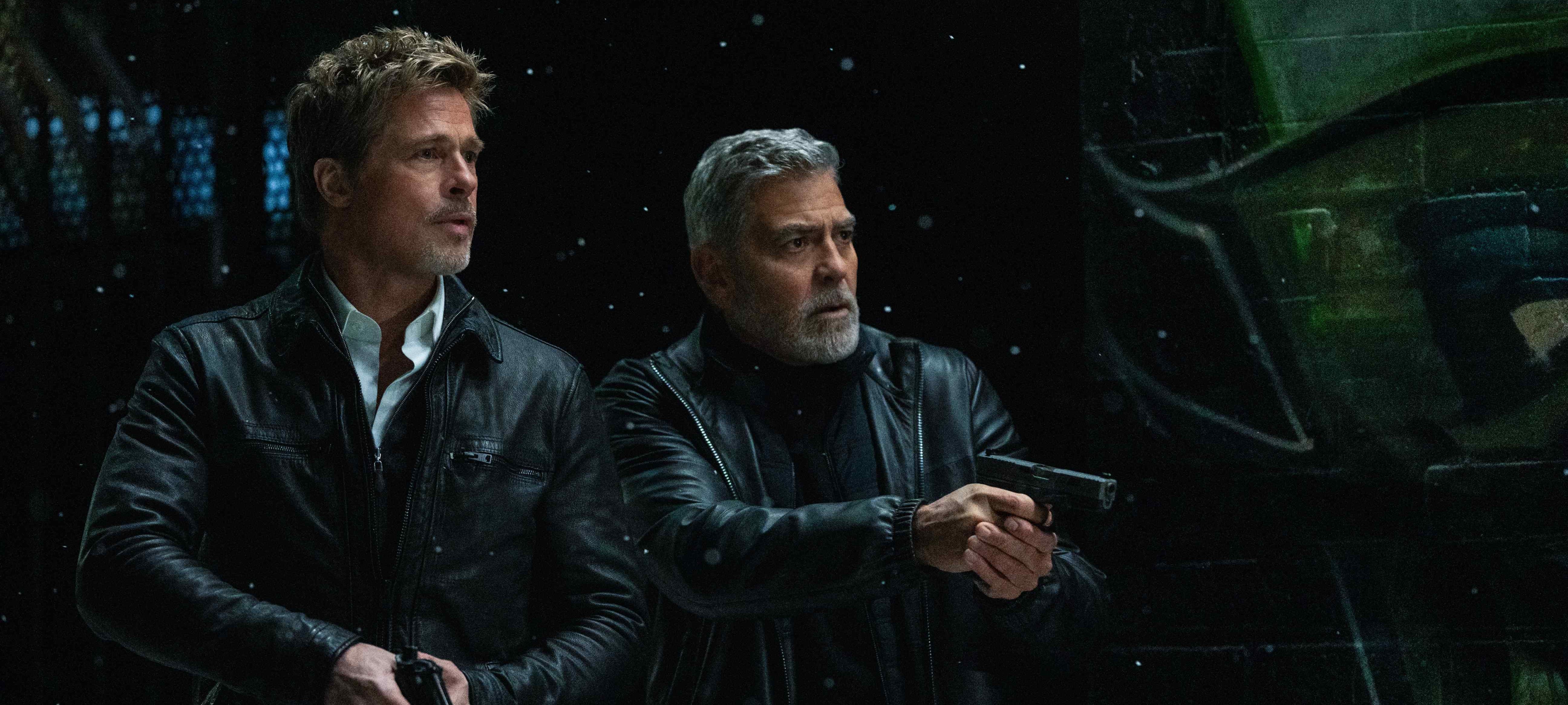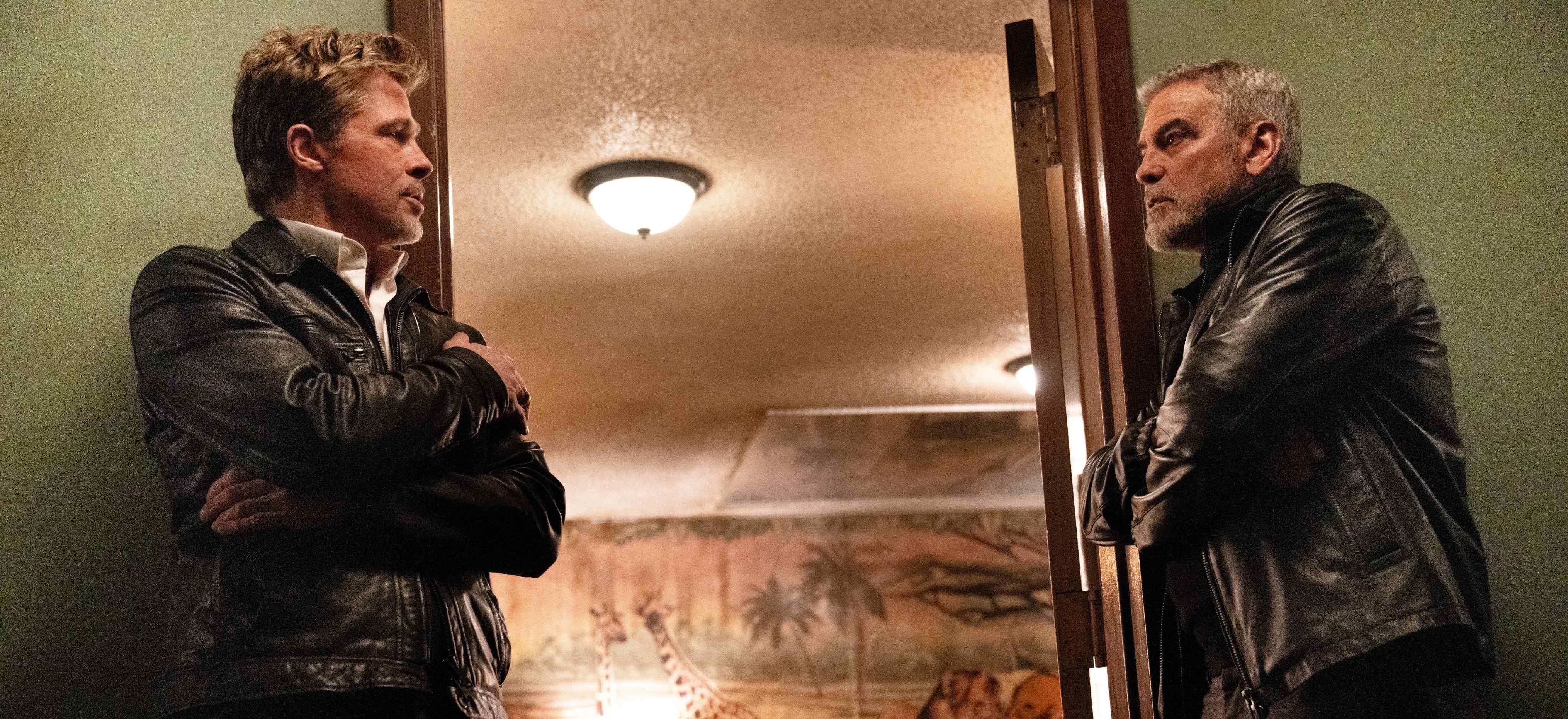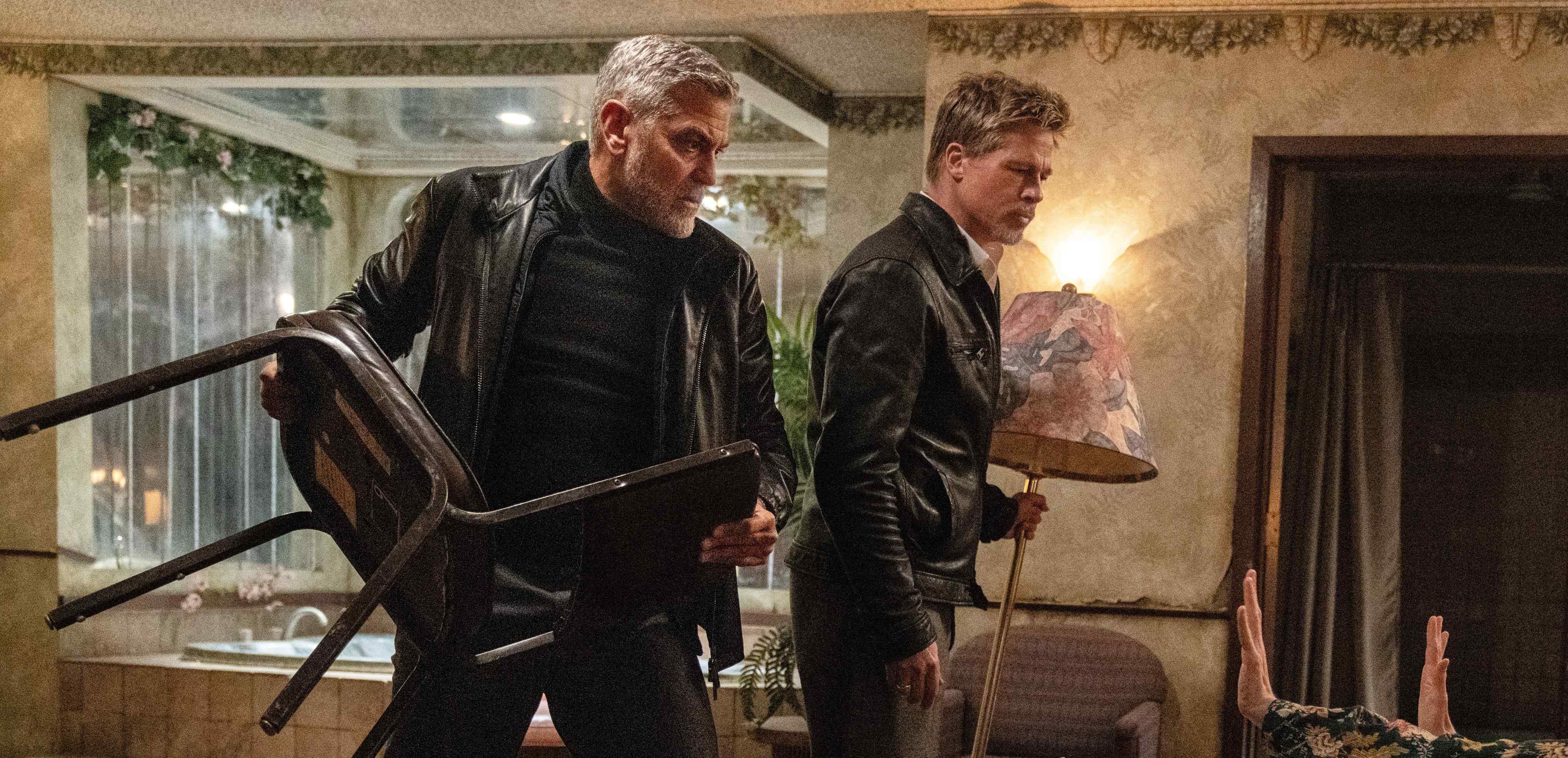In Apple TV+’s action–comedy film ‘Wolfs,’ George Clooney and Brad Pitt’s fixers are nameless. The movie identifies them only as Margaret’s man and Pam’s man, referring to the two women who hire them to clean up a mess the district attorney made in the hotel owner’s establishment, Hotel Delon. Throughout their partnership to solve the predicament, they remain nameless. They prefer to hide their names even when they trust each other with their lives, especially while confronting gunslinging adversaries. As the movie concludes, they decide to share the same if they survive the enemies who arrive to kill them. This “namelessness” says a lot about what Jon Watts wanted to explore through the film! SPOILERS AHEAD.
The Fixers’ Lack of Names Reflects Their Loneliness and Similarities
Jon Watts conceived ‘Wolfs’ and the two nameless protagonists to explore the intricacies of the loneliest job in the world. This line of thinking led the filmmaker to create the characters as fixers. The concept behind the names is nothing but identification, especially among a group or society. As far as fixers are concerned, a name is a burden for them. They are individuals who are supposed to be non-existent and, most importantly, unidentifiable. If they can be identified or their existence can be exposed, their clients are at risk, and they become problem-creators rather than problem-fixers. Thus, the profession itself demands a lack of names.

While writing the action comedy, Watts focused on what would happen if the loneliness of two fixers collided. The best way to establish this sense of solitude is to present them without names. Clooney and Pitt’s characters don’t bother with names because they may not have shared them with strangers since they started working as fixers. Their operations are supposed to happen alone, and that’s why they hate each other at the start of their new assignment. Obviously, there is a matter of trust when they meet. Both know that they cannot trust each other, which is why they don’t take the other to their “place.”
However, more than trust, the insignificance of their names must have held the fixers back from sharing the same. Furthermore, Watts finds conflict and comedy in the narrative by presenting the protagonists as exactly the same. “For these two too-cool-for-school guys, what would burst their bubble more than meeting someone that’s basically exactly like them?” the filmmaker summarized his concept to The Hollywood Reporter. In addition to wearing identical clothes, they have the same boss and physician. They feel sleepy and yawn at the same time. The two even love the same breakfast place. By naming them, they are becoming two different men with different identities. When they are unnamed, they are just the reflection of each other, which is exactly the story’s foundation.
Jon Watts Named George Clooney and Brad Pitt’s Fixers Before Hiding the Names
While George Clooney and Brad Pitt’s fixers are not named in ‘Wolfs,’ Jon Watts knows what they are called. The filmmaker named Clooney’s character Jack and Pitt’s character Nick. However, he hid the names because the narrative demands the same only after the film ends. When the partnership between the fixers continues to grow, the loneliness they experience starts to evaporate. They become concerned about each other’s well-being, which is evident when Pitt’s character fears whether Clooney’s fixer is shot and dying. Rather than a lone wolf, each of them transforms into part of a two-wolf group.

When the sense of solitude is completely gone, realizing that they need each other to fight their enemies, the fixers decide to share their names. As their boss, The Guy, turns against them, they are no longer invisible. They are exposed to the world like any other man in the realm of crime, where their names become relevant. That is why their names are discussed only at the very end of the action comedy. Since Apple TV+ already greenlit the film’s sequel, we can expect the fixers to be named in it. The sequel is expected to depict the aftermath of the fixer’s confrontation with their enemies, including their boss.
As the fixers deal with their personal issues, their respective identities are relevant. Their boss is not targeting two nameless fixers who are not supposed to exist but two individuals the person knows intimately, justifying the possible introduction of the names. Considering that their renewed partnership will most likely exist in the sequel, potentially naming them Jack and Nick makes sense.


You must be logged in to post a comment.